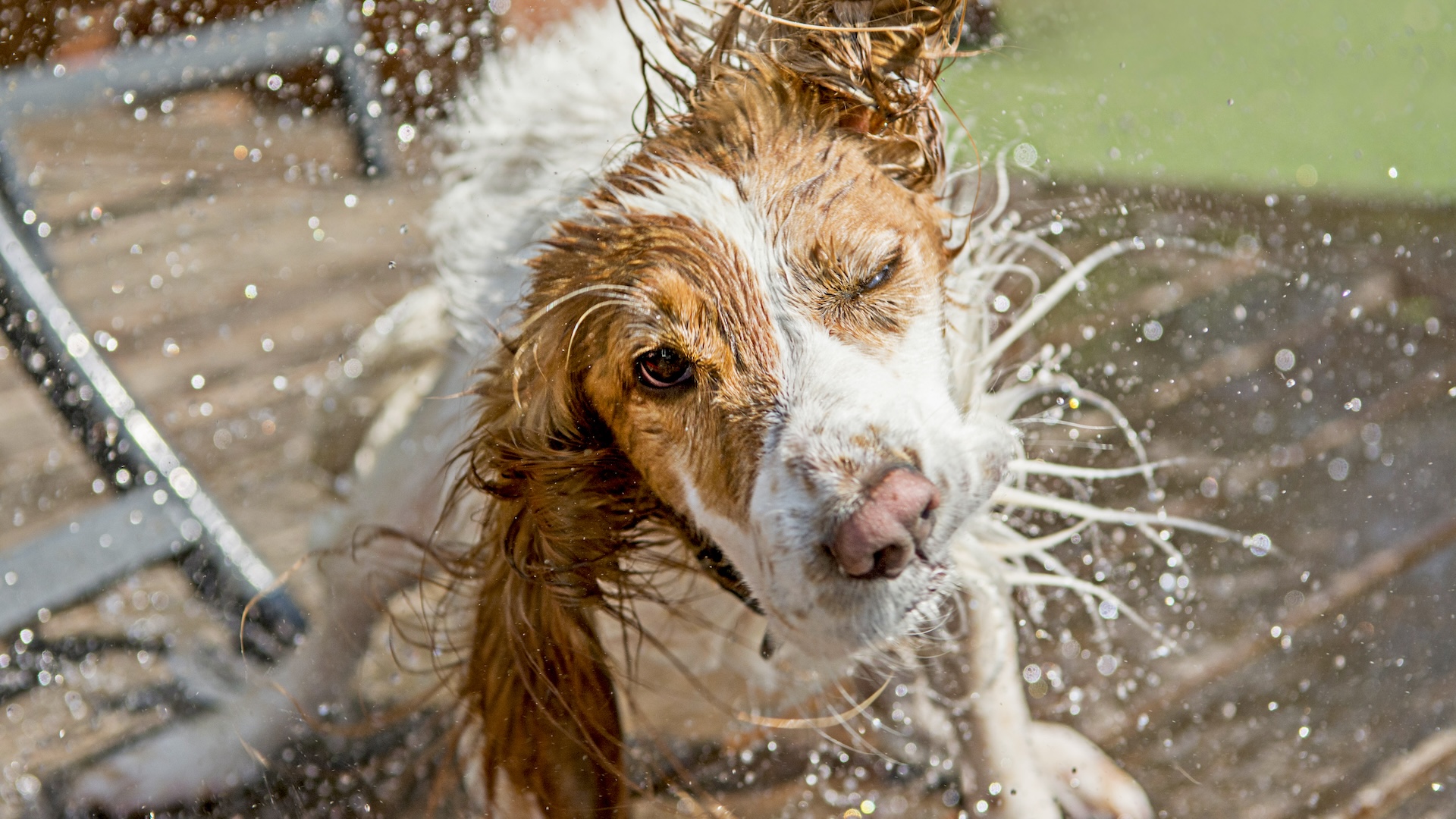
If you've ever known a dog, you've probably had this experience: You're sitting out by a pool on a hot day, throwing a stick for your canine companion. Fido fetches it, then comes right up to you, gives you a doggy grin and shakes cold water all over your dry clothes.
Scientists have finally figured out why dogs do this shake. According to new research, the "wet dog shake" is the fault of a receptor in mammal skin called C-LTMR. And it causes furry animals of all sorts, from dogs to cats to mice, to perform a surprisingly consistent shake when stimulated by droplets of liquid on the back of the neck.
"It's a complicated behavior," said Dawei Zhang, who co-authored the research as a doctoral student at the Howard Hughes Medical Institute of Harvard Medical School. The study was published today (Nov. 7) in the journal Science. Across individuals and species, Zhang told Live Science, animals tend to shake at the same frequency and with a similar pattern of turns — usually three back-and-forth shakes at a time — and no one knew what receptors and nerves were responsible.
New genetic tools enabled Zhang and colleagues to find out, but identifying the culprit for the shake took a bit of detective work. First, the researchers created genetic mutations in mice that would knock out either the channels in skin receptors that detect mechanical forces, or the receptors that detect temperature change. They found that mice without the ability to detect temperature change still shook when droplets of oil were sprinkled on the backs of their necks (the most reliable way to trigger a "wet dog" shake). But mice without mechanoreceptor channels didn't shake.
So Zhang and his team focused on mechanoreceptors, tracking their activity in response to oil droplets. They narrowed down their focus to three receptors, all of which react to very light touch. Next, they used a technique called optogenetics to activate specific receptors on the skin with light. With this technique, they could trigger the individual nerve types without any liquid stimulus.
The results were clear: When the researchers stimulated a type of nerve called C-fiber low-threshold mechanoreceptors (C-LTMRs), the mice shook as if they'd been given a sudden shower. To double-check, the researchers engineered mice without C-LTMRs and found that they shook 58% less than normal mice when drizzled with water.
C-LTMRs have long been something of a mystery, Zhang said. They were suspected of creating ticklish sensations in animals based on research conducted 80 years ago, he said, but it wasn't clear how animals experienced the stimulus. In humans, related mechanoreceptors called C-mechanoreceptors have been associated with pleasurable, brushing touches on the skin.
C-LTMRs carry signals from the follicles of the undercoat of furry animals, so the new study suggests they're specialized for detecting tiny, annoying stimuli like crawling parasites or drops of water, Zhang said: "Essentially, it's a defensive system to get rid of potentially harmful stimuli that's on their fur."
Whether humans, with their fur-free skin, have any vestiges of this shaking response is an open question. "I used to give the answer that humans use a towel to dry themselves," Zhang said. But there is a common shiver reaction to light touch on the back of the neck in humans — it's just not clear whether that shiver is related to what a wet dog might feel before it shakes.
"It's difficult to correlate whether this is an evolutionary product of the rodent or furry animal 'wet dog' shake," Zhang said. "Maybe it is, maybe it's not."
Another outstanding mystery: Why do dogs have to come right up to you to shake themselves dry? That one may prove more difficult to solve.







